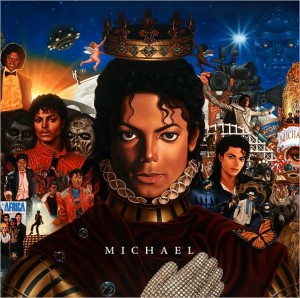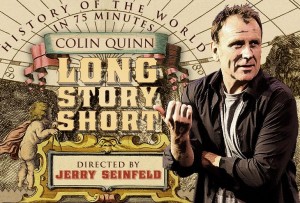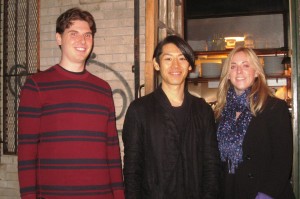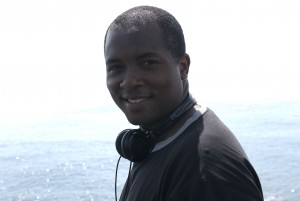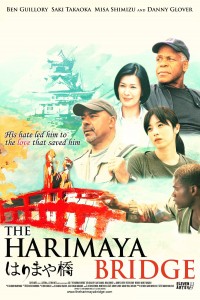Sake World e-newsletter by John Gauntner (January 2011)
 The January 2011 issue of the Sake World e-newsletter by JET alum and the leading non-Japanese sake expert in the world, John Gauntner (a.k.a. “The Sake Guy”), is now available online. In this issue:
The January 2011 issue of the Sake World e-newsletter by JET alum and the leading non-Japanese sake expert in the world, John Gauntner (a.k.a. “The Sake Guy”), is now available online. In this issue:
1. Greetings
2. The Suffix “-shu”
3. Announcements and Events: Sake professional course in Japan
4. Sake Education Central
Additional links:
Justin’s Japan: Michael Jackson Covers J-pop Classic on New Album
By JQ magazine’s Justin Tedaldi (CIR Kobe-shi, 2001-02) for Examiner.com. Visit his NY Japanese Culture page here to subscribe for free alerts on newly published stories.
According to Billboard, Yellow Magic Orchestra’s 1979 electropop smash “Behind the Mask” will appear on Michael, the first posthumous album from the late recording megastar Michael Jackson.
Penned by YMO’s Oscar-winning composer Ryuichi Sakamoto with Chris Mosdell, “Behind the Mask” was first brought to Jackson’s attention by legendary producer Quincy Jones during the Thriller sessions in the early ’80s. The King of Pop cut the Japanese group’s song, adding an extra melody line and additional lyrics. Legal battles barred it from making the album, and the tune languished in the vaults until now.
Click here to read the rest of the article.
Sake World e-Newsletter by John Gauntner (December 2010)
 The December 2010 issue of the Sake World E-mail Newsletter by JET alum and the leading non-Japanese sake expert in the world, John Gauntner (aka “The Sake Guy”), is now available online. In this issue:
The December 2010 issue of the Sake World E-mail Newsletter by JET alum and the leading non-Japanese sake expert in the world, John Gauntner (aka “The Sake Guy”), is now available online. In this issue:
1. Greetings
2. Rice to Sake: How Much?
3. Did You Know?
5. Sake Basics
6. Announcements and Events: Sake Professional Course in Japan
7. Sake Education Central
Additional Links:
Justin’s Japan: Interview with Colin Quinn on Broadway’s ‘Long Story Short’
By JQ magazine’s Justin Tedaldi (CIR Kobe-shi, 2001-02) for Examiner.com. Visit his NY Japanese Culture page here to subscribe for free alerts on newly published stories.
Give Colin Quinn 75 minutes, and he’ll give you a hilarious history of the world’s greatest empires. Written and performed by the Brooklyn-born comic (Tough Crowd, Saturday Night Live) and directed by Jerry Seinfeld, Colin Quinn: Long Story Short premiered earlier this month on Broadway to rave reviews from the New York Times, Variety and Entertainment Weekly. I spoke with stand-up’s Renaissance man about the show and his admiration for today’s Japan.
Putting this show together had to have been an educational experience on so many levels. What did you learn?
It was more like thinking about things that I sort of knew more than learning. It’s like realizing how it really is amazing that we’ve never changed at all in terms of how we behave as people.
How about for the sense of stagecraft in your act?
Definitely the sense of movement; the sense of being in different places and trying to, you know, keep it about movement—a lot more movement—which I definitely think is important. In stand-up you don’t think in those terms. Thinking in terms of acting as different characters, you do it a little bit, but not really.
Your show covers China, but Japan is totally absent. Do you have any plans to inject more of it in future shows?
It is kind of a disgrace to leave out imperial Japan; they were a giant empire, let’s face it. I had this whole thing about the Dutch and Japan and England all being these little countries that ran things. Maybe I’m going to try to find a way to incorporate that stuff in. I used to have a line about how Japan was like the little guy that used to intimidate the big guy China—China was kind of the mama’s boy at that time. So maybe there’s a way that I can incorporate that back in, but we cut it out for time.
Where have you traveled to in the world?
I’ve been to Japan, I’ve been to China, I’ve been to Africa, I’ve been to the Middle East, I’ve been to Europe a little bit. I’ve never been to South America.
What was your time in Japan like?
I was just doing shows for the USO, so I was at all the military bases. I spent two weeks in Japan, but I went everywhere except Tokyo. [laughs]
What other cities and places did you visit?
I was in Nagasaki and Hiroshima and all that stuff, just wherever the military bases were.
When was that?
About six years ago. I’ll tell you the truth, it was so beautiful to travel—we traveled by bus most of the places, and just passing the houses, everybody’s got these beautiful roofs. It’s like, wow, the people really just care, you know?
Click here for the rest of the interview.
Culture Spreader: John Gauntner – The Sake Guy
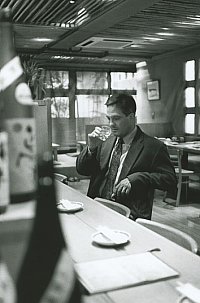 Culture Spreaders is a new feature intended to shine a spotlight on JET alums involved in spreading and sharing Japanese culture in their home countries. If you know of a good JET alum for a future post, just e-mail jetwit [at] jetwit.com tell us why you think that alum is a Culture Spreader. (Self-nominations welcome too.)
Culture Spreaders is a new feature intended to shine a spotlight on JET alums involved in spreading and sharing Japanese culture in their home countries. If you know of a good JET alum for a future post, just e-mail jetwit [at] jetwit.com tell us why you think that alum is a Culture Spreader. (Self-nominations welcome too.)
JET alum and leading sake expert John Gauntner (aka “The Sake Guy“) has established himself as the leading non-Japanese sake expert in the world. See, e.g., this 2009 Japan Times article titled, “Nihonshu evangelist preaches heady mix of culture, taste.”
Not only does John spread the sake gospel through numerous appearances and events in the U.S. and elsewhere, but he also offers a Sake Professional Course in various locations to teach others how to be sake experts and evangelizers. As a result, there are now four sake-only specialist shops in the U.S.–True Sake (San Francisco), Sakaya (NYC), SakeNomi (Seattle) and The Sake Shop (Honolulu)–and the owners of all four attended John’s Sake Professional Course for the purpose of starting their respective businesses.
For his work spreading Japanese sake culture around the globe (and helping the Japanese sake industry expand its markets), John Gauntner is hereby recognized by JetWit as a serious “Culture Spreader.”
Editor’s note: In the “JET’s a small world” department, it turns out that both John Gauntner and last week’s “Culture Spreader” Bruce Rutledge are both originally from Cleveland and previously have met at SakeNomi in Seattle, where Bruce currently lives.
Sake World e-Newsletter by John Gauntner (November 2010)
The November 2010 issue of the Sake World E-mail Newsletter by JET alum and leading sake expert John Gauntner (aka “The Sake Guy”) is now available online. In this issue:
1. Greetings
2. “I’m from the Gov’t”
3. The 18 Nihonshu Samurai Tasting
4. Did You Know?
5. Sake Basics
6. Announcements and Events: Sake Professional Course in Japan
7. Sake Education Central
Additional Links:
Interview with Guitar God John McLaughlin
By JQ magazine’s Justin Tedaldi (CIR Kobe-shi, 2001-02) for Examiner.com. Visit his NY Japanese Culture page here to subscribe for free alerts on newly published stories.
Whether you call it electric jazz, fusion, or just good old music, John McLaughlin is the forefather of this style on the six string. From his contributions on classic albums by Miles Davis starting with the landmark In a Silent Way in 1969 to his own work with the massively influential Mahavishnu Orchestra and as a solo artist, McLaughlin is a legend who has continued to record with no signs of slowing down.
His 2009 collaboration with Chick Corea, Five Peace Band, won the Grammy Award for Best Jazz Instrumental Album earlier this year, and in April McLaughlin then released his new disc with the 4th Dimension, To the One (Abstract Logix). Following a concert at New York’s Town Hall last weekend, the artist graciously took the time to answer some questions.
Tell us about your history with Japan. What attracted you most to the culture?
I’ve been studying the cultures of Asia for many years, and I’m very attracted to the culture of Japan, in particular to the impact Zen has had on the Japanese mind and spirit. That said, any in depth study of Zen will bring you to China and the culture of Chan, the forerunner of Zen. In my opinion, there is one singular problem with religions in general: they are exclusive. To me, this exclusivity is not right. Zen and Chan’s “ways” of discovery are non-exclusive. They speak about the reality of everyone having Buddha nature, and the potential of realizing it. This is the aspect of Zen and Chan that appeals to me strongly: the non-discrimination and inclusivity of everyone.
Are there any Japanese musicians of whom you’re a fan? What other kinds of Japanese performing arts do you enjoy?
I am less of a fan of Japanese music than I am to the poetry of haiku strangely enough, though I do enjoy the koto and shakuhachi music. The Zen calligraphy is something for which I have a great admiration.
Why do you think the Japanese possess such a great interest in jazz?
For sure the answer lies in the culture of the Japanese mind. Perhaps because the spontaneity of jazz appeals to their innate sense of honesty. In improvisation, jazz or otherwise, there’s no room to lie.
Click here to read the rest of the interview.
Interview with Jazz Musician Keiko Matsui
By JQ magazine’s Justin Tedaldi (CIR Kobe-shi, 2001-02) for Examiner.com. Visit his NY Japanese Culture page here to subscribe for free alerts on newly published stories.
Contemporary jazz icon Keiko Matsui began playing piano at the age of five. With sales of over 1.2 million units in the U.S. and sold-out appearances at concert halls across the world, she is one of the most recognized artists in the genre.
In addition to being the first Japanese artist to top Billboard’s contemporary jazz chart, she actively supports a range of charities, including the Y-Me Breast Cancer Organization. United Nations World Food Programme’s efforts in Africa, and California for A3M’s charity for the National Marrow Donor Program.
Matsui is now putting the final touches on her latest album, due early 2011 with Shanachie Records. I spoke with her prior to her debut three-night stand happening next week at New York’s venerable Blue Note Jazz Club.
Congratulations on your very first show at New York’s Blue Note. How do you feel about playing there and what do you expect?
Of course in New York, Blue Note is a legendary place, and I’m very happy to be there. At the same time, I have toured in many different countries, and I always feel very fortunate at the concerts to feel that music connects us beyond the culture, history, country, everything. So, I really feel that this experience at Blue Note will be very special.
When did you first come to the U.S.?
In the early ’80s.
What did you do there?
At that time, I was invited to Los Angeles by Yamaha for a special recording. I was also a student, and had the opportunity to make a sample album with Vinnie Colaiuta and Nathan East. That was my first visit to the U.S., and also my first recording there. I invited Vinnie to record on my new album, so I’m glad to see him again.
What were your memories of that experience? Did you have any culture shock?
I only had one week there, so of course I didn’t know much about the music scene in the U.S., but I was so entranced by Nathan and Vinnie’s playing. It was great creating music together with great musicians, but at that time they were so open. Maybe this is a cultural difference, because Japanese language is based on politeness and different words depending on who you talk to, but English doesn’t have that. So, Japanese people speak really strictly, I felt.
You’ve had a successful career for a long time. Why have you decided to play Blue Note now?
That’s true. For me, that’s something I’m kind of questioning myself, too. [laughs]
Click here to read the rest of the interview.
Interview with Competitive Eater Takeru Kobayashi
By JQ magazine’s Justin Tedaldi (CIR Kobe-shi, 2001-02) for Examiner.com. Visit his NY Japanese Culture page here to subscribe for free alerts on newly published stories.
Takeru “The Tsunami” Kobayashi is a three-time Guinness World Record holder for competitive eating. He burst on the American scene in 2001 at Coney Island’s annual Nathan’s Hot Dog Eating Contest by downing 50 dogs in 12 minutes, doubling the previous record. Kobayashi went on to win the contest six consecutive times while shattering other gastronomic records around the world.
After a shocking arrest and subsequent dismissal of charges in July at this year’s Nathan’s event, Kobayashi returned to the stage last night at the Japan Arts Matsuri in Brooklyn for another challenge: to become the world’s fastest 12-inch pizza eater. While he fell less than 20 seconds short of the 1:45 record (saying afterward that the pie was softer than he anticipated), there was no doubt among the crowd that the champ will give it another try in the near future. Hours before taking the stage, I spoke with Kobayashi through his interpreter Emiko Watanabe for this rare English language interview.
What kind of training does one have to do to be the world’s fastest pizza eater?
I had to practice how to use a knife and fork, because I have to use it for this challenge. That was the main thing.
That’s interesting. Most people don’t use a knife and fork to eat a pizza.
It would be much easier if I was allowed to use my hands instead. So it’s going to be a little harder.
What’s your favorite kind of pizza?
Pizza Margherita.
How are things after July 4th? Do you find that you’re more popular and recognized in New York from people on the street?
[laughs] I think so; I feel that I’m more recognized than before. I was famous before as a six-time champion [at the Nathan’s contest], but after Independence Day this year, people think I’m more interesting and have humor, so people notice me a lot more than before.
Where do you live in New York?
Manhattan.
Many celebrities in America are known for their talent, but personality is also important. Are you making more efforts to do things like learn English to become a bigger celebrity here?
I started going to an English school last month.
What kinds of things do your fans ask when they recognize you?
They don’t really ask anything, but they do ask to take a picture with me.
Any memorable encounters?
I met this fan who didn’t recognize me at first. She was an African American lady, and when she first spoke to me, she just thought I was a cool or cute Japanese guy. We talked, but then she recognized who I was, saying, “Oh my God! Oh my God!” It turns out that she was scrapbooking all of my articles from Independence Day, and the reason she did that is because she thought I was cute. When she realized that I was the same person, she went out of control screaming.
Click here to read the rest of the interview.
Sake World e-Newsletter by John Gauntner (October 2010)
 The October 2010 issue of the Sake World E-mail Newsletter by JET alum and leading sake expert John Gauntner (aka “The Sake Guy”) is now available online. In this issue:
The October 2010 issue of the Sake World E-mail Newsletter by JET alum and leading sake expert John Gauntner (aka “The Sake Guy”) is now available online. In this issue:
1. Greetings: Happy Sake Day!
2. Toji Today: The State of the Artists
3. Did You Know? Start with the rougher stuff
4. Sake Basics: Sake Temperatures
5. Announcements and Events: Sake Professional Course in Portland and a new sake educational blog
6. Sake Education Central
Additional Links:
Notable JET alums: Bruce Feiler comments on anti-Islam protests on CNN
Bruce Feiler (Tochigi-ken, 1987-88), author of Learning to Bow as well as several very thoughtful books on the topic of religion including Walking the Bible, was recently a guest on CNN discussing current anti-Islam sentiment with Anderson Cooper. Click here to read more posts about Bruce Feiler on JetWit.
http://www.youtube.com/watch?v=2-pVfz8UbZU
Notable JET alums: Rob Cornilles – U.S. Congressional candidate
JET alum Robert Cornilles won the Republican primary for Congress in Oregon’s 1st District and will be running against incumbent Democrat David Wu this November 2010.
Rob is also the founder and CEO of Game Face, a successful sports marketing company with a client list that includes the Chicago Bulls, Miami Dolphins, Boston Celtics, New York Mets, St. Louis Cardinals and Los Angeles Dodgers.
For more information about Rob and his campaign, you can visit his website at www.cornillesforcongress.com.
Notable JET alums: Tim Harms
Tim Harms (1994-95) is film producer for the indie film The Vicious Kind among other films. Tim was also the line producer for The Harimya Bridge, a film written and directed by fellow JET alum Aaron Woolfolk.
Notable JET Alums: Maynard Plant and Monkey Majik
Maynard Plant (Aomori-ken, 1997-2000) is the founder of the well-known Japan-based band Monkey Majik (www.monkeymajik.com), which consists of two Canadian members (Maynard and his brother Blaise) and two Japanese members-tax and DICK.
For more information you can check out their:
- Website: www.monkeymajik.com
- Wikipedia entry (where you’ll learn about the origins of the band as well as how Maynard is fluent in Aomori-ben): http://en.wikipedia.org/wiki/Monkey_Majik
- Embassy of Japan in Canada press release: “Goodwill Ambassadors, Monkey Majik, arrive in Ottawa to celebrate the 80th Anniversary of Japan-Canada Diplomatic Relations”
Here is their song Change with the Yoshida Brothers (a video all JET alums will appreciate):
Do you know of any notable JET alums? Let us know at jetwit [at] jetwit.com.
Notable JET Alums: Aaron Woolfolk’s “The Harimaya Bridge” wins at Pan African Film Festival
Aaron Woolfolk (Kochi-ken, 1991-93), director and writer of the Kochi-based film, “The Harimaya Bridge,” recently won a director’s award at the 2010 Pan African Film Festival.
Click the link below to read the article and learn more about Aaron and his acclaimed film.
http://www.indybay.org/newsitems/2010/08/12/18655970.php

